A Detective's Eye, a Photographer's Lens: Interview with Artist Laura Chen
1 6 Share TweetNetherlands-born, UK-based artist Laura Chen works with analogue photography, collage and writing, exploring the intriguing in the mundane, otherness, and the relationship between reality and fiction. Her multi-media project Being Framed imagines the contents of a fictional filing cabinet that belonged to a detective working in North London in the 1970s. This series draws parallels between the speculative nature of investigative work and photography, allowing the viewer to consider the two fields' shared ideas of illusion, truth, and deception.
In this interview, we speak with Laura about the profound curiosity that led to the conception of projects like Being Framed, the importance of questioning the objectivity of truth, and her enduring love for storytelling.
Hi Laura! Could you start by telling us a bit about yourself and how you got started with film photography?
Hello! I’m a Dutch photographer, collage artist and writer based in the UK, and I make images to immerse myself in my vivid imagination. My visual discourse is quite eclectic, highly intuitive, experimental and playful. Drawn to the obscurities and idiosyncrasies of the mundane, my practice is an investigation into forms of otherness. Be it objects, places or people situated on the fringes of society — my images are tranquil observations of the visible traces and rituals of daily life that may otherwise go unnoticed. Alongside notions of impermanence, other recurring interests of mine include fiction, illusion, mise-en-scène, memory, nostalgia, identity, genealogy, mythology, synchronicity, and many more.

I’ve always had a sensibility to the language of images, but it wasn’t until I was 16 or so that I first started getting into photography, mostly taking snapshots with a digital pocket camera. Curious by nature, I soon became intrigued by the possibilities of the medium and brought a camera with me everywhere I went.
Once I moved to England to study photography at university, I taught myself how to shoot film and spent most days in the darkroom on campus making prints. It’s still like magic to me now, watching images appear from nothing. I completely fell in love with the tangible aspect of the medium, and playing around with different methods and formats, from 35 mm and 120 film to Polaroid.

Film photography has made me slow down and reflect more. The process of taking a picture is very tactile and intimate, starting with loading a roll of film into my camera. It has made me more appreciative of photography as a communicative tool and an art form, as well as aware of the time and effort that goes into making a picture.
Can you tell us a bit more about the origin and context of your project Being Framed?
When I was younger, I used to pretend I was a private detective or undercover agent and would invent my own investigations and scenarios. I would spy on my family at home and try to overhear their conversations, taking notes and writing down their interactions and words in great detail, according to every minute. I would also watch strangers across the street from my bedroom window, analysing their movements and encounters. One time, in the early morning, while both my parents were still asleep, I took a sample of their fingerprints using a pencil and a piece of adhesive tape. I also plucked a hair from their heads with tweezers. I still have their over ten-year-old DNA embellishing a page in one of my reports. I suppose there was always something in me that was drawn to observing others, especially secretly. I think it is exactly this curious and prying mentality that led me to photography later in life.

The concept of analysis became the blueprint of Being Framed, of which the title plays with the twofold-ness of the expression; how it can be used to refer to both incrimination and photography. In this multi-layered project, I explore ideas of speculative documentary and question photography’s ambivalent status between fact and fiction within a narrative of imagined crimes, investigated by protagonist police detective DCI Dean Wilson. The work - which operates at the edge of narrative plausibility - is based on the following story:
"In 1979, a police station in North London branched out to specialise in peculiar crimes. Leading the investigations was Detective Chief Inspector (DCI) Dean Wilson, who dedicated his whole life to fighting what the traditional, prevailing criminal justice system would consider “petty offences and misdemeanours”. From a young age, DCI Wilson took minor wrongdoings very seriously. Once Head of the Department of Marginalised Cases (DMC), he went above and beyond to fight any form of uncalled-for behaviour, confronting those who breached the established social codes of conduct. From secret gatherings and heated arguments with next-door neighbours, to stolen and broken possessions, it was his duty to handle the disputes between members of the community, treating each case equally and fairly."
Driven by mystery and make-believe, the work is presented as real evidence as part of a serious inquiry. Staged photographs intermingle with collages, ransom note-inspired documents, newspaper clippings and faked archival materials in a dossier-like structure — all culminating in a collection of images from an authentic-looking police report. Each case, however, remains unsolved, questions unanswered, and facts unestablished. Thus, the viewer is invited to take the investigation into their own hands, tasked with deciphering what to believe and with finding the missing clues within the visual puzzle.

Informed by research into the customs and formalities of police department photographers and their understanding of the medium, Being Framed references the techniques and aesthetics of photojournalism and forensic photography. Revolving around issues of pretence, surveillance and hypothesis, the work explores the visual and dialogical properties of the overarching “detective genre” in relation to the mechanisms connected with looking and describing. With tongue-in-cheek humour, it challenges the photographic codes and conventions of crime scene photography in a conceptual and playful manner, and exposes the subjectivity and fragility of our perception by tampering with the truth for the sake of storytelling and illustration.
You use a lot of collage as well as photography in your work. Why do you like to work with multiple media?
I work primarily lens-based, but often incorporate mixed media elements and photomontage techniques to see if and how I can breathe new life into images. Collage is an interesting field for me to explore as there is so much scope for storytelling. Depending on how you cut, formulate, juxtapose and position photographs, impacts the way we read and perceive them. I repurpose images in an attempt to ascribe them with new meaning and potential; to rewrite their narratives, and ultimately in the process, impose a sense of abstraction on them.
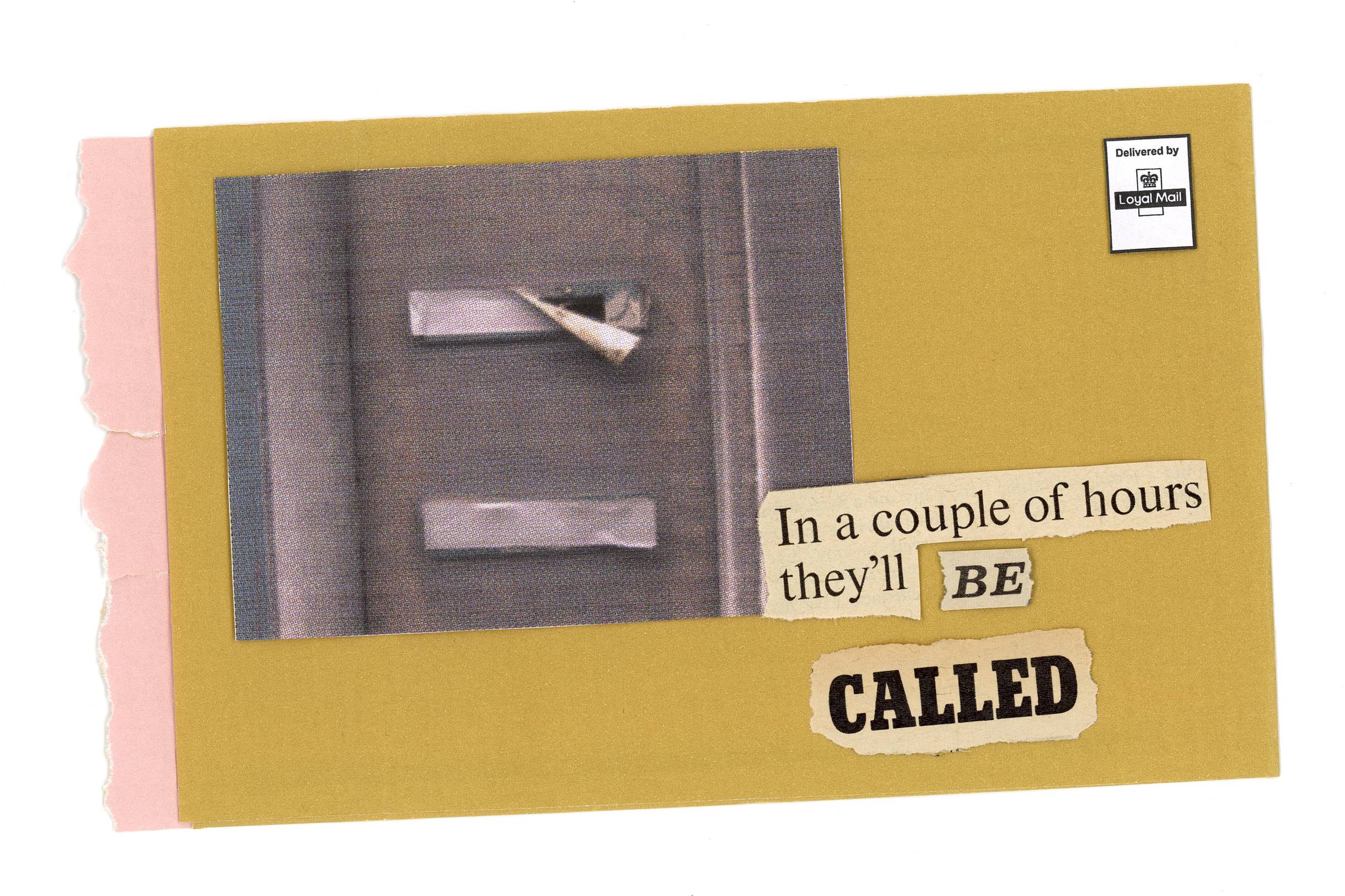

I frequently revisit my own personal archives to rediscover pictures I’ve taken, but never ended up doing anything with (or forgot they even existed). When working with readymades - photographs taken by other people - I wonder about the what, when and why. Using the images themselves as a medium, I start as the collector, and through exploration and appropriation, gradually take on the role of curator and maker. During this process of merging, I present visual accounts of places, people and things that would otherwise never have been put in relation to one another. Recollections and situations are enveloped in a new context. In a sense, I’m just recycling all these visual remnants and traces, taking them on a journey through time.
I like the challenges that come with taking a multidisciplinary approach, but it can also occasionally make my head hurt to think about what to do with an image as I'm spoilt for choice. Do I just leave it as it is, a face value photograph? Or is there more to this particular image? Maybe if I do this or that (i.e. embroider or puncture it; cut, tear, fold and crumble it up; weave or stick it back together; paint, draw and write over it; rephotograph or scan it back in), I can bring out and enhance a certain detail or feature, or completely transform it into something else - something so far removed from its original state that I can’t ever imagine it looked any different before.

It’s inspiring to work with photographs, either my own or found ones, and to look at them as a commodity from a contemporary point of view too, especially in today’s image-saturated society where there’s an endless stream of visual material already out there in the world waiting to be seen and put to use.
How did you become interested in the concept of photographic “truth”?
Ever since I can remember, I’ve been very inquisitive and felt a need to get to the bottom of things. I’ve always been full of questions. Growing up, I came to realise that a camera is the perfect tool for gathering and structuring my findings. I take pictures not necessarily to find answers, or to get some kind of closure, but more so to embrace the unknown and find harmony and pleasure in getting lost in the act of making discoveries (which is usually more rewarding than the discovery itself.)
Since a few years, I’ve become fascinated by the complexity of visual evidence and the idea of deception and illusion, which I found to be the most powerful attributes of photography. Photography’s role as a medium with visual accuracy has been closely linked to claims of objectivity and factuality throughout history. This common and prevalent belief that photographs accurately depict reality is both captivating and concerning. It’s remarkable how you can influence and direct the gaze of the viewer with careful and subtle persuasion.
Whatever, factual or invented, through orchestration you can play with reality and turn it to your hand, at least to a certain extent. You can decide to either include or remove something from the frame, and trick people into believing something happened or existed the way that you depict it. We trust pictures because we recognise certain elements within it, but is that “evidence” enough to believe it’s sincere? Or is that where the “truth” of the picture ends? What “truth” can a picture offer when there are so many variables that influence, control and regulate how the image will be perceived? In other words: photography is complicit in the act of truth making, and invites us to imagine a multiplicity of truths. Its indexical nature brings both possibilities and limitations.

Pictures are loaded with hidden clues and meanings, yet the meaning of an image is dependent on the context in which it is used and seen. As photographers all we can do is put our images out there and leave it up to the world to appoint and construct meaning to them. Like when writing a note to yourself, you make a picture to hold onto something - to immortalise and commemorate a moment, place, person, an action or emotion.
But that thing you want to preserve is already no longer there, nor the same anymore, by the time the picture has been taken. It only exists in the past and only remains present as an imprinted representation within the framework of the image. Thus, deception lies at the heart of photography, and the photographer him or herself is the initial and primary victim of that deception, for presuming to have captured that which is gone. The “truth” as such, isn’t obvious, and perhaps it’s not even as important as we make it out to be.
You explore the multiple parallels between investigative work and photography - the speculation, interpretation, the need for a good eye. Has working on Being Framed influenced the way you approach or understand your own photographic process?
Most certainly. Photography to me is all about observation and discovery, about dissecting and scrutinising the world through a viewfinder, one frame and fragment at a time. To me being a photographer is about being someone who can see things differently. I’m constantly occupied with creating and note-taking, and finding new ways to translate and articulate my ideas and internal visions. I find in photography both a form of escapism and confinement. Taking pictures is confrontational. So far, it has taught me a lot about myself; how I think, feel, interpret and understand things.
By capturing and commemorating my surroundings, encounters, travels and quotidian experiences, I process life in all shapes and forms. Intentional or not, every image reveals something about the photographer that made it. Because I work so intuitively, it’s rare for me to be entirely certain and aware of what I’m doing in the act of taking pictures. I’ve come to realise that letting the passage of time do its thing, and taking some distance from my work, is necessary in order for me to understand why I felt drawn towards something. Only on reflection can I trace back my motives and actions.
You use a lot of props in this series, some of them very specific to your fictional detective. How did you go about deciding on and creating these props?
I’ve read and watched a fair amount of crime novels, detective thrillers and cop series in my time, always attentively studying the cinematography, choice of language and pictorial elements, so when it came to creating my own imagined world, and protagonist, I already had a lot of ideas in terms of how I wanted things to look and feel. I set out to create something visually enigmatic and mysterious; a cryptic space that oscillates between the real and the fictional, the past and the present. Something dark, moody and gritty, like a typical film noir, with plenty of playful self referentiality and anachronisms. There’s many layers of reference to the visual and image-making culture of the 70s within my photographs and collages, and to the tradition of forensic photography, including the use of flash.

I began sourcing and making my own props, finding bits in charity shops and using my own belongings: analogue cameras, film canisters, cassette tapes, stationary supplies, as well as pictures I’d taken that were used as part of the decor, pinned on an evidence board that was then rephotographed again. Lucky me, I lived in a house-share in London at the time, and my landlord was a retired criminologist, so fate was in my favour. He had all kinds of “souvenirs” from his time as a professor working both in and with the force, so I incorporated lots of the memorabilia (police department coffee mug, trophies, evidence boxes) alongside objects that I sourced from elsewhere (crime scene tape and evidence markers). His office was like a museum with hundreds of books and trinkets - the ideal backdrop for many of the pictures I took as part of this project. I also designed and built small scale sets in other rooms around the house.
I wanted to achieve images that are hard to pinpoint, that intentionally make you confused and curious, not only because they appear to both old-fashioned and modern, but also due to the production of effects; how they simulate veracity and evidence yet have a humorous undertone. I tried to find a balance between everything being fact-driven by employing a certain degree of knowledge and information to constitute authenticity, and things being imagined, take the definition of ‘evidential’ loosely.
Both in Being Framed and Ant Football, you also use text as a means of conveying a storyline. It seems that you have a real love for storytelling. Where does this come from?
I think any photographer is first and foremost a storyteller. We all have something to say, but maybe not everyone feels comfortable enough to put it into words or writing. That’s where a camera can come into use - for those that would rather let the image speak for them. I love getting lost in stories, whether in books or films, or when overhearing people’s conversations out in public. Every story is ultimately a sequence of uniquely defining circumstances and events, a certain disposition in a specific time and particular place. Storytelling to me, just like photography, is all about the little details. I enjoy reiterating single words or entire paragraphs until their meaning becomes fluid, manifold or obsolete.
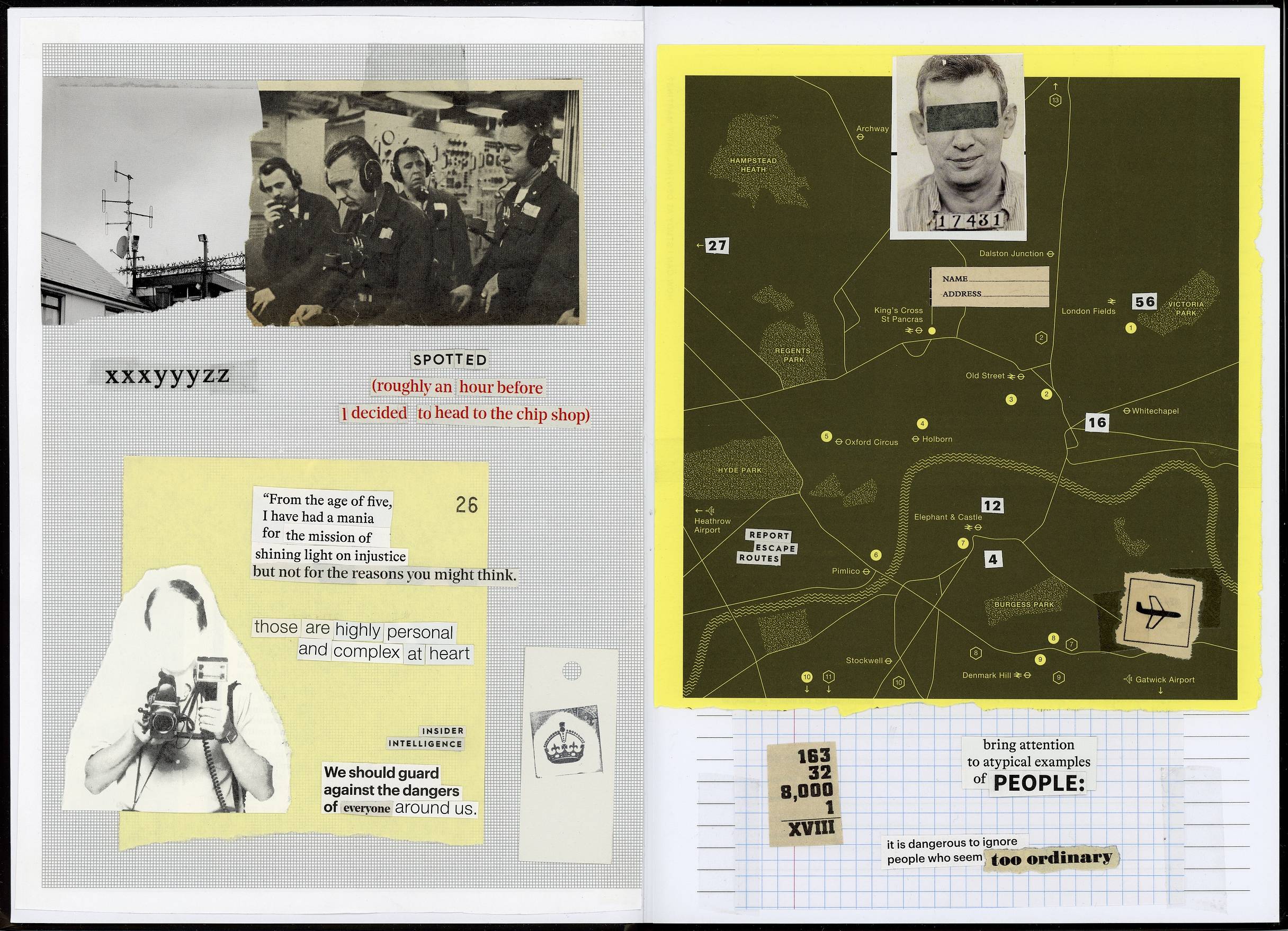
Similarly, I enjoy making and repurposing photographs for the same reason. The relationship between image and text is enticing and complicated. When combined, the two begin talking to each other - ironically something neither can actually do as non-verbal mediums. They can be viewed on their own terms, but when put together, or in close proximity, the resulting chemistry can create a reaction that would not have been possible had the two elements not met.
It’s interesting how stories are inherently biased, and unavoidably governed by numerous variables that determine the way they are delivered and received. Specifics become generalised and details that were insignificant are made more important than they really were, and vice versa. When passed on from one generation to another, stories tend to undergo a vigorous treatment of filtering and abstraction, increasingly becoming further removed from the original.
Do you have any other projects coming up that you’d like to share?
I have a whole list of project ideas, but it’s hard to say where my practice is headed towards at this point. I’ve really enjoyed combining fiction and reality within my work, so maybe I will continue exploring this area of interest as a starting point.
We'd like to thank Laura for sharing her work and insights with us! To view more of her work, follow her on Instagram and check out her website.
written by emiliee on 2024-01-24 #people #in-depth #text #collage #netherlands #truth #reality #fiction #detective #investigation #laura-chen














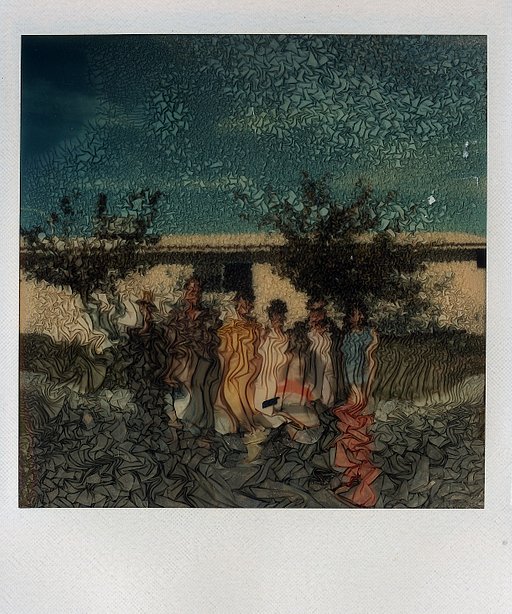

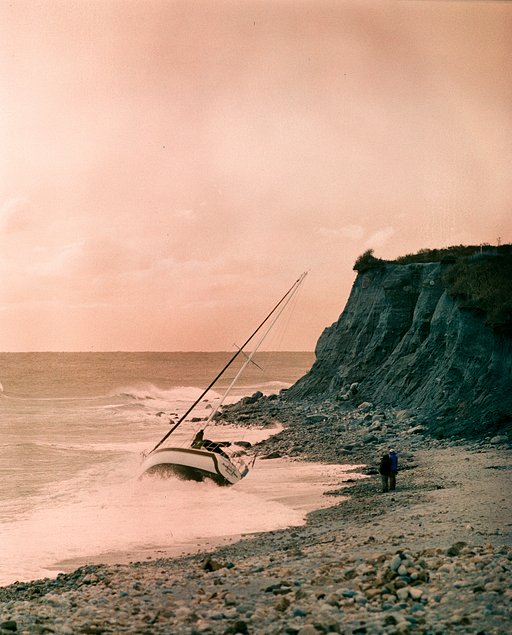
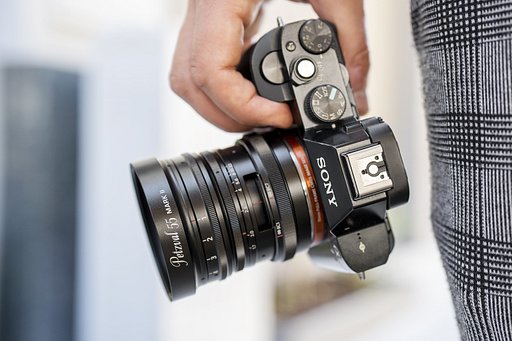




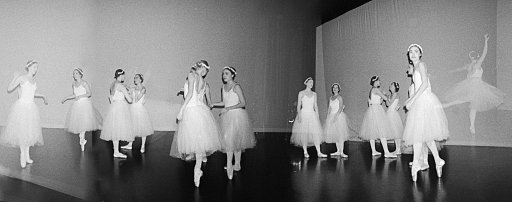






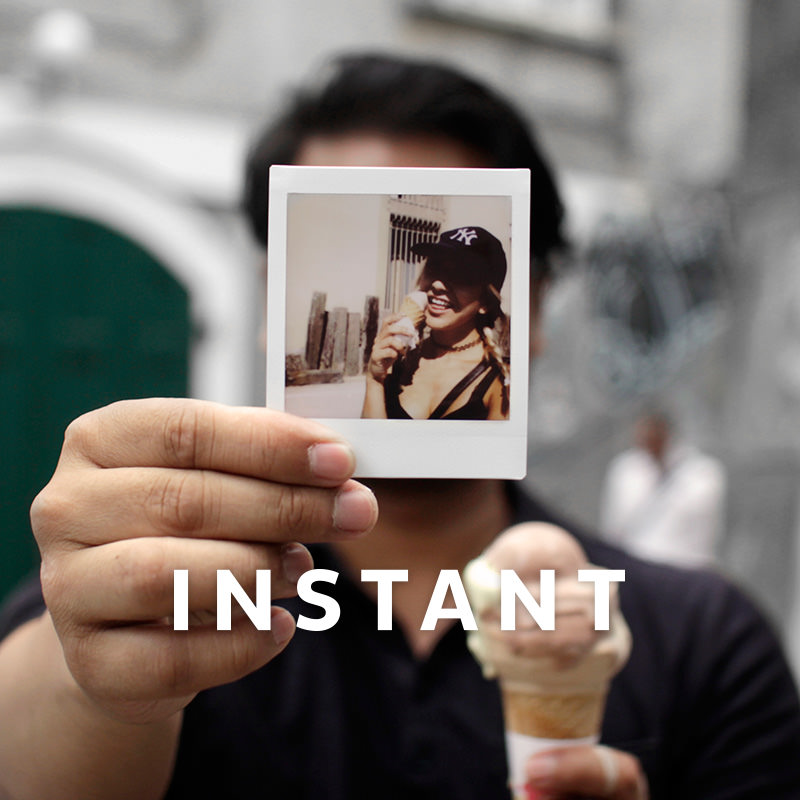
One Comment